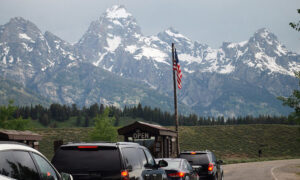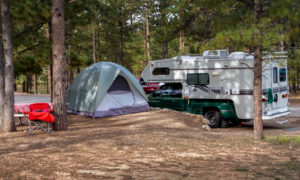
RVers often look for and use public WiFi hotspots at RV parks, travel plazas and rest areas. But public hotspots are open and unencrypted so by nature are insecure. Information you transmit via your laptop or smartphone, may very well fall into the wrong hands. There are ways to stay safe, however. They are:
- Set your Wi-Fi device to disallow automatic connection to opens networks. By doing so, will always know when you’re connecting to an open Wi-Fi hotspot. Auto-configuration is most popular on smart phones but many laptops are configured that way by default.
- When using a public hotspot make sure you disable sharing. If there’s a storage device or other computers on your home network, you may have sharing enabled on your laptop.
- If you’re conducting business or sharing sensitive information, it’s best to use a virtual private network (VPN), which creates an encrypted, private link across a public network.
- Use a personal firewall, either the one that came with your Mac or Windows PC, or a third-party app from a reputable security vendor. Firewalls come with a range of configurations. At a minimum, you will want to know when another computer is attempting to gain access to your system.
- When paying bills and shopping online using a hotspot, it’s best if the hotspot has WPA2 security. At the least make sure the website has a secure connection. A site is securer if there is an ‘https’ in your browser’s web address bar.







Thanks so much for this info. I will soon be traveling extensively and am concerned about exactly what your post discusses. I have done all that you recommend except I don’t understand what a VPN is. Is there a source out there where I can find out more about what this is and how to do it?
Thanks, Nancy
Practically speaking, for most RVers who want to use a VPN will have to subscribe to a VPN service. A virtual private network service provides you with a secure tunnel to the service’s encryption servers. To do this a ‘tunnel’ is created through an untrusted network (the WiFi hotspot). Everything in the tunnel is encrypted. It no longer matters that someone can sniff your packets. All they will see is an unreadable series of letters and numbers. Additionally, anyone snooping around on your connection will not be able to discern the final destination or the type (web, email, chat, streaming video) of service you are connected to.
Howstuffworks.com has a wonderful VPN flash graphic in their HowVPN’s work article. It’s a bit technical but informative.
VPN is for connecting to a specific computer or network that needs to be set up as well to receive the one you are using. Not much good for paying bills online and such unless you left a computer on at home with a static IP address and a VPN tunnel set up and then used terminal server.